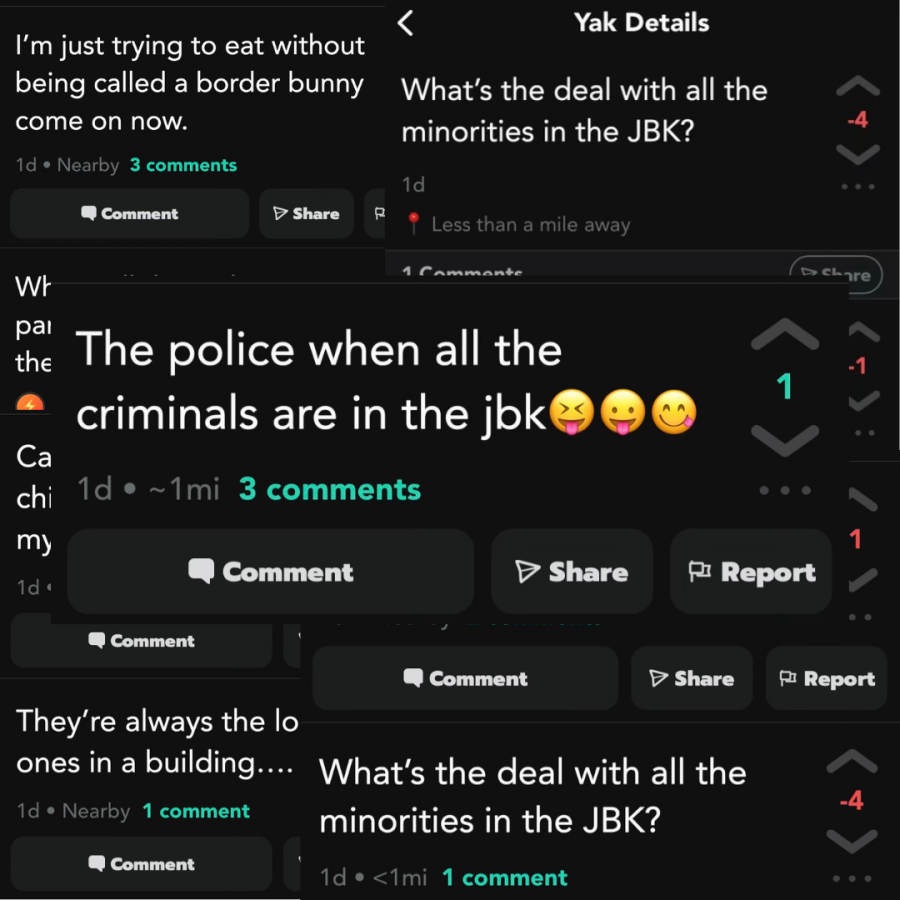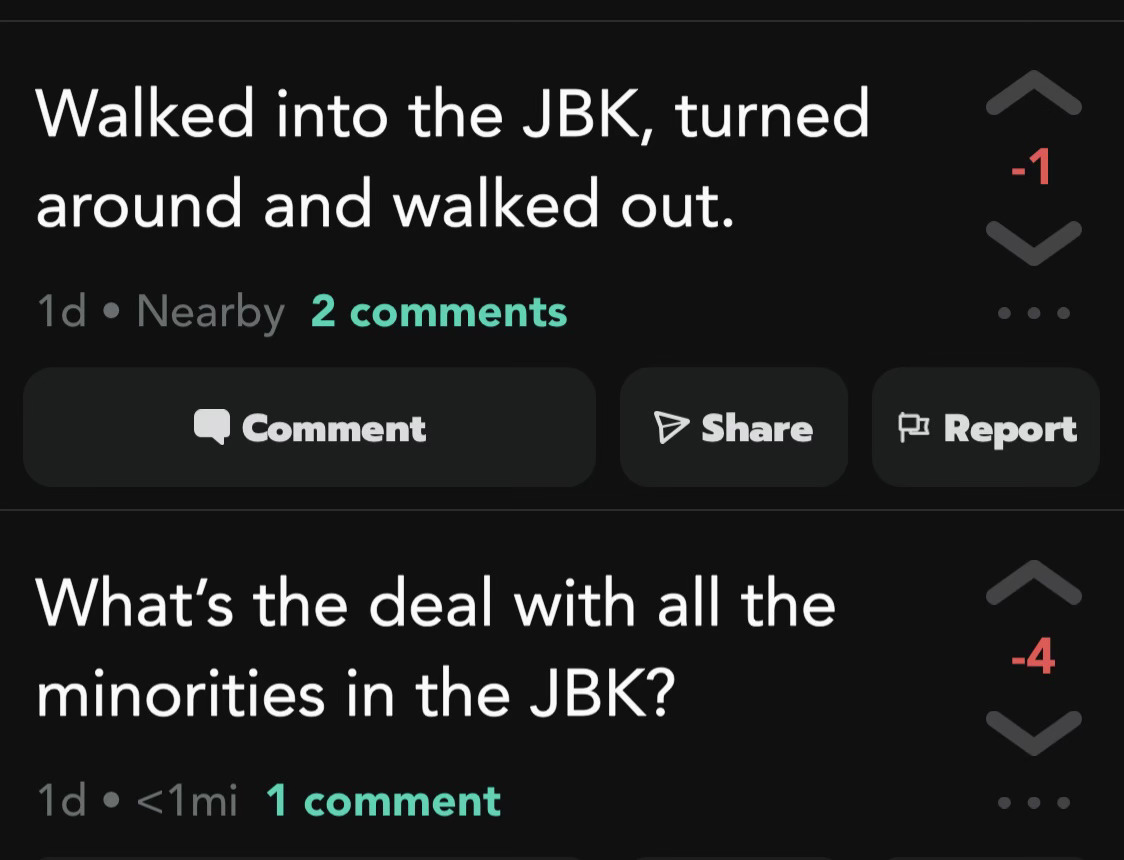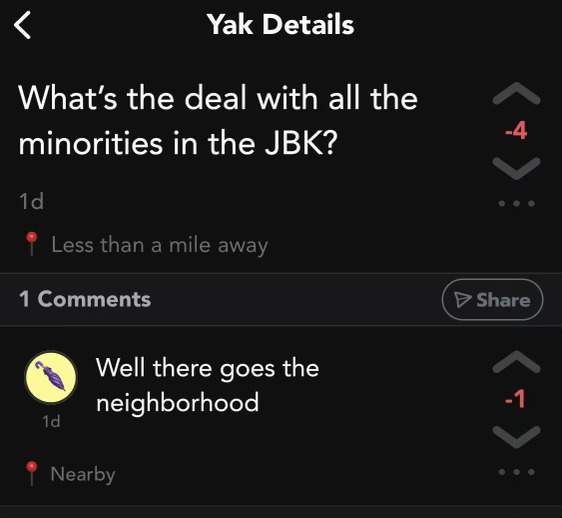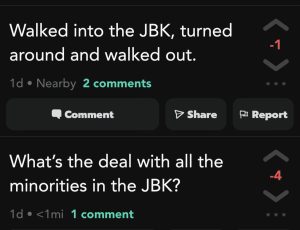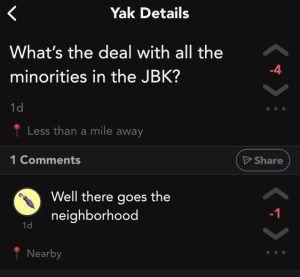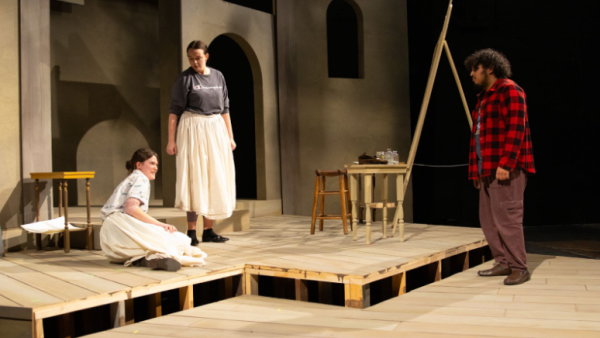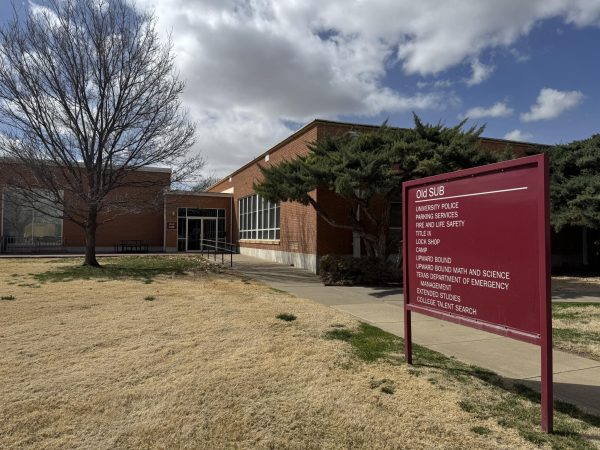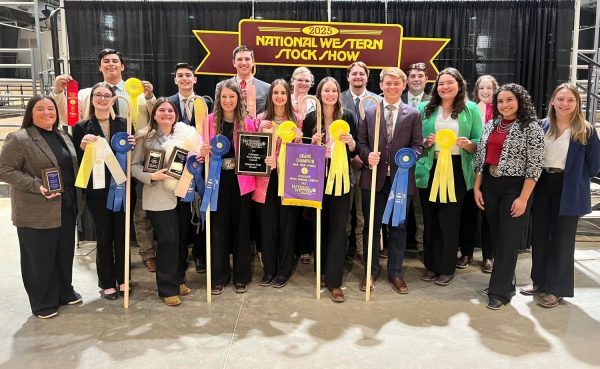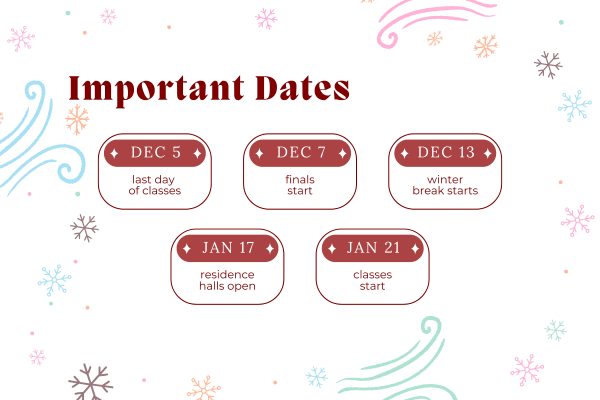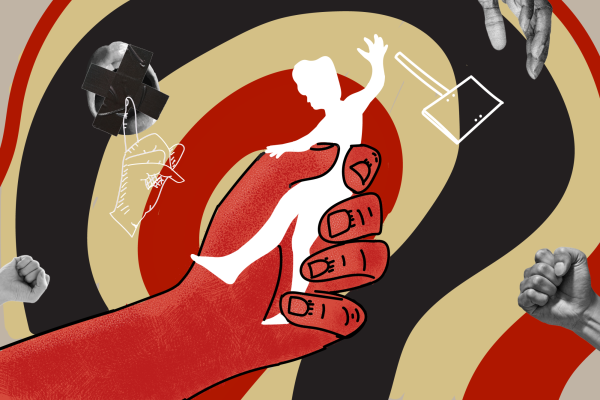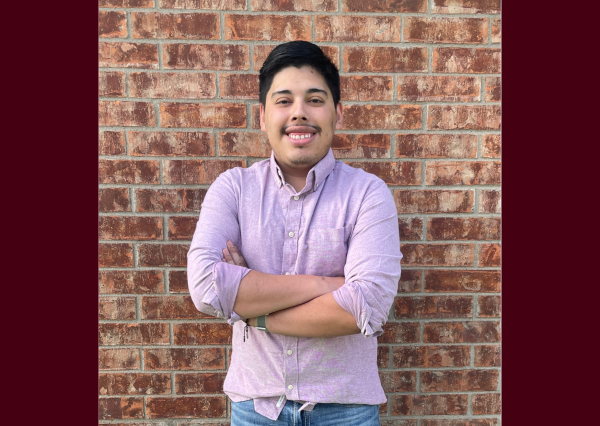Opinion: We are tired of the ‘lip service’ about addressing racism at WT
Screenshots of Yik Yak posts made by WT students during the Buffs Around the World event on April 6, 2022.
“We must be impatient for change,” said Claudia Flores, immigration campaign manager for the Center for American Progress. “Let us remember that our voice is a precious gift, and we must use it.”
West Texas A&M University recently held its annual “Buffs Around the World” event on April 6. The purpose of this event is for WT students, faculty and staff to have the opportunity to share their culture with others on campus. When I received the email about the opportunity to participate in this event, I was really excited to share my Mexican culture with the campus community. I forwarded the email to Fabiola Hernandez, CAMP academic advisor and coordinator, and asked about the possibility of having the 2021-22 cohort participate to represent Mexico.
I am at WT because of CAMP, a program with the mission “to help students from migrant and seasonal farmworker backgrounds transform their lives by obtaining a post-secondary education.” My experience with CAMP has been more than just academics. I have made great friendships and established relationships that have led me to this point — writing this article and standing up for the Hispanic community.
Participating in Buffs Around the World took a lot of planning and organizing from our CAMP cohort. Lizbeth Fuentes, a sophomore sociology major, Rodolfo Acosta, a sophomore international business major, Montzerrat Garza, a freshman criminal justice major, and I took the lead of planning for the event with the support and participation of our other cohort members. We met weeks before to create a vision board of what we wanted to do, what themes we wanted to represent and how to share parts of our heritage. These meetings helped us form stronger connections with each other, and we hoped to also form stronger connections with our campus community.
After much planning, we decided to represent Mexico through the traditional quinceañera, a celebration that marks a girl’s coming of age. Afterwards, she is considered a mature person who is ready to assume family and social responsibilities. In our culture, the themes of family, religion, food and dance are prominent. We all agreed that, by re-enacting a quinceañera, we would combine all of these themes.
We were so excited to share this with our campus community that we took the time out of our busy schedules to plan, meet and rehearse. We wanted to make it more special and showcase the traditional waltz that is performed at a quinceañera.
While I was helping with rehearsals and taking care of minor details, our other cohort members were contacting businesses, buying materials, creating a Spotify playlist and creating entertainment activities. We wanted to represent Mexico in the best way possible.
The week before the event was the most stressful. At our last meeting, we decided to have Yadhira Avalos, F1RST GEN public relations officer and sophomore pre-med biology major, be our quinceañera girl. Fuentes let Avalos use her quinceañera dress and traditional items such as the last doll, party favors, photo album, guest book and the Holy Bible from her quinceañera. Hernandez brought the dress and items from Dimmitt for us. I had to buy a traditional Mexican dress shirt, while the female cohort members looked for traditional dresses to wear.
On the day of the event, Avalos wore the quinceañera dress. It took her a while to put on due to the multiple layers of the dress, which made it heavier and more difficult to move in. Dylian Martinez, a freshman agricultural business and economics major, was her “chambelan de honor,” or escort of honor, in the quinceañera, and was dressed in his charro outfit. Everything was going as planned.
Buffs Around the World is a way to show and appreciate the differences that we each have and unite us as members of the Buff family. But, that is not what happened.
During the event, it came to our attention that racist and hateful comments were being published on Yik Yak, a social media platform that allows users to post anonymously.
After our presentation, we noticed that many students were looking at their phones and then looking our way. One of our CAMP cohort members sent a screenshot of a comment made towards us on the app. I downloaded Yik Yak and saw as the racist comments kept coming.
It was very sad to see that people didn’t value my culture and the time we spent preparing for the event. I have had many reflective conversations with the members of the CAMP cohort. I am not the only one who feels this way.
“I felt frustrated and angry with the comments being made,” said Brandon Patiño-Lugo, a sophomore pre-dental biology major. “We put so much work and effort to represent our culture, and we felt like we couldn’t have fun because we were too concerned about what others were thinking.”
“I came to WT believing it would be a safe space that I would feel comfortable in,” Avalos said. “Ever since elementary school, people with the same color as my skin have faced negative comments on continuing our education, from the school systems to our very family. Instead of loving words and encouragement, we were given bad looks, words and judgment. It’s been the ‘elephant in the room’ that there is a clear negative implicit bias here at WT against minorities. I hope that one day I can finally feel safe and welcomed.”
“This has not changed my view on WT. Even before this event, as the HSA vice president, I have noticed that minority groups are isolated from everyone else,” said Daniela Cervantes, a senior digital communication and media major. “I wish the university would do more to show their support towards the Hispanic community on campus and, with this event, it is once again disappointing to see that nobody has our backs.”
What is WT administration doing about this? The answer is simple: releasing another statement. You would think that an institution who prides itself in saying at the end of every press release, “WT, a Hispanic Serving Institution since 2016” would take action against racist and derogatory comments, but all we get is yet another statement.
The statement was originally released only to on-campus faculty and staff on Wednesday, April 20, two weeks after the incident, and posted on the Office of Diversity and Inclusion webpage. But, students did not get an email. As a student affected by these comments, I don’t understand why this statement wouldn’t be released to the students.
I had the email forwarded to me. I noticed that the email address was not the one that all students receive information from. After that comparison, I decided to contact Chip Chandler, senior communications specialist, and asked him who the recipients of the original email were. He confirmed that the recipients of the first email sent were on-campus faculty and staff.
Because the statement included the signature of Angela Allen, chief diversity and inclusion officer, I went to her office so she could help me understand why the email was sent the way it was.
“When we [Dr. Neil Terry and Mike Knox] first composed the email, it was to my understanding the email was going out to the entire WT family,” Allen said.
After my conversation with Allen, I received a phone call from Chandler. He explained to me how the email issue was being fixed, and the entire student body would receive the email shortly. This did happen and students received that email on Wednesday, April 27, three weeks after the comments had been made.
Students who are affected cannot sit back and relax. The University needs to be proactive in addressing racism. Talking to students is the first step.
When I applied to WT, I didn’t sign up to feel unsafe and disrespected. I expect and demand better from our administration. I expect a campus that defends and has no tolerance for these issues. If students are feeling unsafe and ashamed to embrace their culture, that’s a problem that needs to be addressed with actions and not “lip service.”
While I understand that the comments made were anonymous and cannot be traced, I still expect and demand a response from our administration that is more than words on paper. Not seeing an action from them makes me feel like we are not valued and respected, and we deserve better.
While I am not an expert, a solution I would like to offer is a university core curriculum class required by the university. A class where students are taught about diversity and inclusion and are trained to learn how to work together effectively without prejudice and discrimination. This is a small step the university can make happen that will be more effective.
I would like to be optimistic that actions will be taken, but I fear we will only continue to receive statements from our WT leaders instead of action. I would like to leave the University administration with these questions: Are you giving the Office of Diversity and Inclusion enough resources to create programs that will help students embrace diversity? Are you recruiting and hiring more members from minority groups as faculty and staff? Are you giving minority students scholarships and creating fair access, opportunities and advancement for all of us?
If not, these are just empty words that we have heard over and over again.



